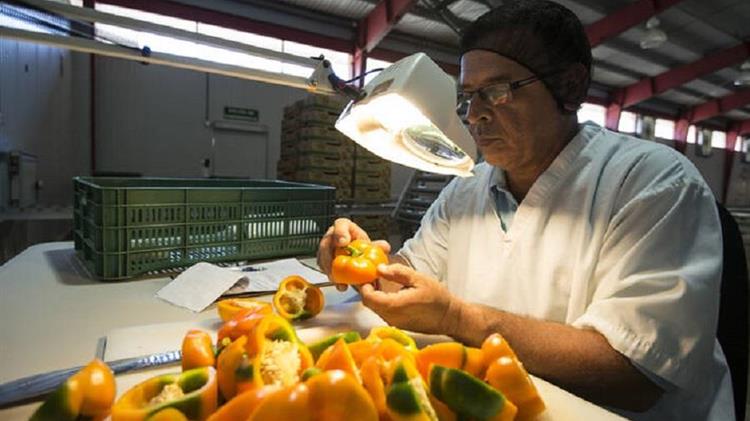Every year, up to 40 percent of global crop production - worth over $200 billion - is lost to plant pests and diseases.
The 15th Commission on Phytosanitary Measures (CPM-15) - the governing body of the International Plant Protection Convention (IPPC)* - began meeting today to set standards to curb the spread of plant pests and review the state of plant health and protection worldwide.
No less than a new international consciousness about plant health is being sought.
In his keynote address at this morning's session, Jari Leppä, Minister for Agriculture and Forestry of Finland said that "Humanity is facing a number of existential challenges. [...] It would certainly be my dream that in 30 years' time the year 2020 would not only be remembered for the COVID-19 pandemic, but also as the beginning of a new international consciousness about One Health, including plant and environmental health!"
In her address, Beth Bechdol, Deputy Director-General of FAO, also spoke of a new paradigm."FAO is moving towards a new Strategic Framework", she said, adding "One of our core functions is to facilitate and support countries and other partners in the development and implementation of normative and standard setting instruments for more efficient, inclusive, resilient and sustainable agri-food systems towards the achievement of the 2030 Agenda for Sustainable Development."
According to CPM Chairperson, Francisco Javier Trujillo Arriaga, the international movement of people, goods, containers, and cargos, as well as the increasing volume of goods traded via e-commerce and climate change, are all factors that increase the possibility for plant pests to be introduced and established in new countries and regions. To mitigate the effects of these risks, the world needs that preventive measures adopted at country level become standardized policy and mechanisms implemented at regional and national levels. "The Commission on Phytosanitary Measures is the only international forum that addresses those issues and it leads the implementation of the International Plant Protection Convention" he said.
COVID-19 and threats to plant health
Jingyuan Xia, the Director of FAO's Plant Production and Protection Division and IPPC Officer-in-Charge, stated that "The COVID-19 pandemic is proving that prevention is always better than the cure, and this applies to the health of humans, animals and plants." The last 14 months have jeopardized access to affordable and nutritious food, but the IPPC ePhyto Solution, for example, has allowed countries to exchange electronic phytosanitary certificates throughout the pandemic and assured the continuing safe trade of plants (the ePhyto Solution's long-term financial sustainability will be discussed at CPM-15).
Expected outcomes of CPM-15
The adoption of the IPPC Strategic Framework 2020-2030, including new strategic objectives and a development agenda to advance global plant health over the next decade will be high on CPM-15's agenda.
The adoption of eleven new standards, including new phytosanitary treatments for regulated pests is expected.
A CPM Recommendation on Food Aid to encourage countries to prepare for managing the phytosanitary risks associated with the export and import of food and other humanitarian aid during an emergency is also due to be adopted, along with a CPM Recommendation on Contaminating Pests to address pest risks associated with traded goods that are not regulated plants or plant products (including conveyances, containers, packaging, storage places, soil, and any other organism, object or material capable of harbouring or spreading plant pests).
Furthermore, CPM-15 will review updates on the International Year of Plant Health 2020, which has been extended until 1 July 2021 (due to COVID-19), and address the progress towards the proclamation of an International Day of Plant Health in 2022. Championed by the Government of Zambia, the proposal of an International Day is expected to be validated by the UN General Assembly this autumn.
CPM-15 sees a record number of participants from over 145 contracting parties, and 30 observer organizations attending the virtual meetings which continue this afternoon and on 18 March and again on 1 April 2021.
*The IPPC is the only international body recognized by the World Trade Organization SPS Agreement and governments around the world for setting and implementing phytosanitary standards to protect plants from pests and diseases, and ensure safe trade in plants and agricultural products.

Ensuring plant health in a post-COVID-19 world
